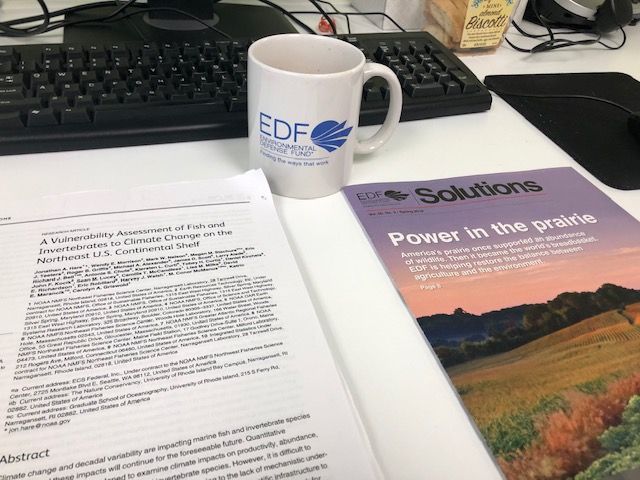Why I applied to the MIIS IEP program, I was aspired to be a environmental “communicator” that merges the gaps between science and policy, and the cultural/political barrier between different nations that from collaborating effectively in solving the common threat of climate change. I also wish to be involved in some revolutionary work regarding ocean conservation. I’ve been searching for a role that tackles all of the aspects I desire, and here comes the perfect match.
My internship at EDF combines international trade, environmental science, economics and knowledge of fishery. This is nothing more “MIIS” than this. I work under the China Ocean team as a fishery evaluation intern, and the scope of my work is incredible global. China is the largest seafood consumer in the world, and China’s national supply can’t suffice its growing marked needs. In fact, China’s EEZ had been severely overfished in the past decades and the coastal governments are looking for ways to restore the stocks while importing more seafood from other countries to satisfy the market needs. The global seafood trade is very likely going to be affected by climate change and policy changes. My job this summer was to 1. Compile the seafood trade flow data between China and its global suppliers; 2. Analyzed the Climate Impact on the major species that China is importing. 3. Compile a case study of sustainable fishery management policy& practice globally for the Fujian Fishery Institute in China.
I had been dreaming to work for Environmental Defense Fund and EDF has proven to me that it is an awesome organization that attracts truly passionate people. I was humbled by the knowledge that my co-workers had every day, and I felt so respected even as a temporary intern. Beside doing my independent project at the office, I also listened to various webinars that EDF organized. The webinars covered a variety of environmental topics that EDF had focused on and had some ground-breaking accomplishment. There’s no office politics in EDF and everyone genuinely works for the common goal and was always happy to help me connect to other professionals, giving me career and life advice, and share some good stories and laughs with me. I was even introduced to the high-level team and joined their video conferences when they talked about the long-term blueprint for the program. I felt I was treasured as part of the team, even though my project was temporary and independent most of the time.







